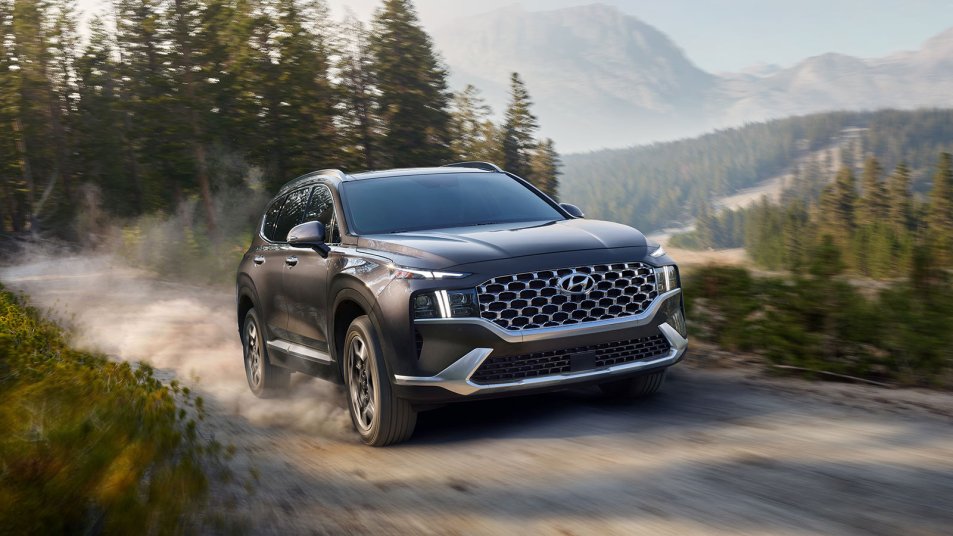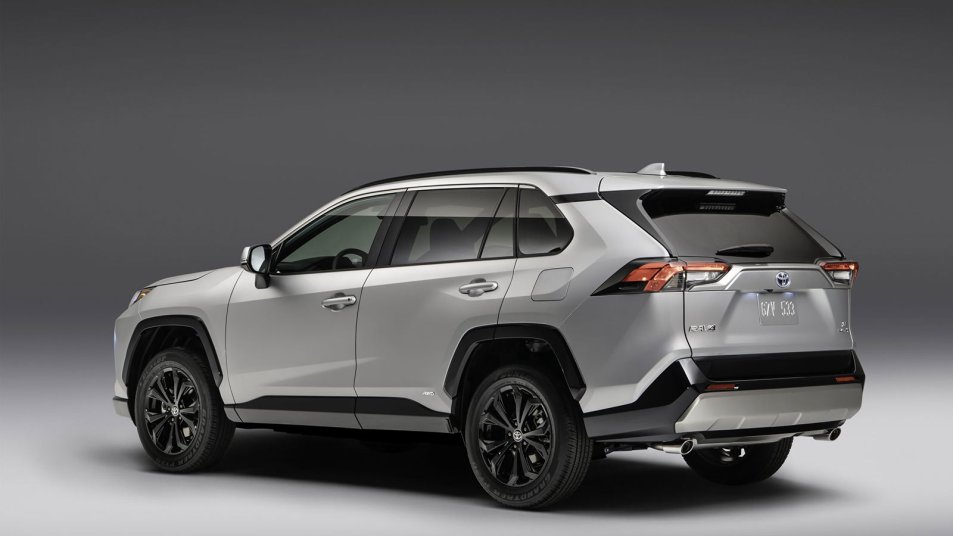Buying a Hybrid Quick Facts
- A hybrid’s superior fuel efficiency comes from using its electric motor at slower speeds before its gas engine takes over.
- They’re as reliable as gasoline-powered cars.
- Hybrid cars have been around for about two decades, so the tech is tried and tested.
Car shopping is more complex than it used to be. Shoppers must decide more than just what price they’re comfortable paying and what features they want. Today’s buyers also need to determine what energy source they prefer to fuel their cars. More Americans than ever choose to drive hybrid cars.
Hybrid market share in the second quarter of 2024 is up by 16% year over year. Cox Automotive experts say interest in hybrid vehicles continues to grow despite attention to electric vehicles and tax credits. So, it begs the question: Is this year the right time for you to buy a hybrid vehicle? We’ll help you sort through the pros and cons of buying a hybrid right now.
Definitions: Hybrids and Plug-in Hybrids
Most cars use a gasoline-powered engine to move their wheels. Electric vehicles (EVs) use electric motors. Hybrid cars use both.
A traditional hybrid — sometimes referred to as a hybrid electric vehicle (HEV) — uses its electric motor to get up to a certain speed, above which the gasoline engine takes over. That gives hybrids better gas mileage than their gasoline-only equivalents. They recharge their small batteries by capturing some energy from braking.
Another category — plug-in hybrid electric vehicles (PHEVs) — also uses a gasoline engine and an electric motor. But thanks to a larger battery, they can travel at highway speeds on electric power alone. Their gasoline engines kick on only after a certain distance, usually after 20 to 30 miles of EV use. They capture some energy from regenerative braking. But they can also be plugged into a wall to charge.
PHEVs cost more than hybrids and gas-powered vehicles. But they neatly split the difference between gasoline-powered cars and EVs. Many Americans drive fewer than 25 miles a day, so they could use a plug-in hybrid to do their daily commute and errands as if they owned an electric car. Still, they’d have the option of using gasoline for a longer trip anytime.
Reasons to Buy a Hybrid Now
1. The Tech Is Tested
Many of us don’t car shop very often. The average car on American roads is about 12.6 years old. So, it’s easy to understand that many shoppers see hybrids as new technology. It’s easy to lose track of what the auto industry has done in the time you haven’t needed to pay attention to it.
However, the first hybrids appeared on the American market in 2000. Hybrid propulsion technology is nearly a quarter of a century old. Almost every manufacturer offers one, and often more than one, model. The hybrids you’ll find on lots today are mostly fourth- and fifth-generation technologies. They’re easily as reliable as gasoline-powered cars.
2. The Selection Is Fantastic
Midsize Family Vehicles — Try the classic Toyota Prius. It looks much cooler now than in its early years. Other solid choices are the Hyundai Sonata Hybrid or Toyota Camry Hybrid.
Minivans — Looking for a minivan? The Chrysler Pacifica Hybrid gets strong reviews, and the Toyota Sienna Hybrid has a good reputation.
SUVs — Among small SUVs, there’s a Ford Escape Hybrid, a Honda CR-V Hybrid, a Toyota RAV4 Hybrid, and more.
More Hybrid Vehicles — There are hybrid midsize SUVs, hybrid pickups, and hybrid luxury cars from nearly every manufacturer. You can get a physics-defying Porsche Panamera Hybrid ultra-luxury car with a zero-to-60 mph time of just over four seconds. You can get a hybrid off-roader in the Jeep Wrangler 4xe, which offers a hybrid mode but is officially a PHEV.
3. A Mature Technology Means a Strong Used Market
New-car buyers aren’t the only ones who should look hard at hybrids. There is now a robust used hybrid market. With pre-owned cars, you can get a used hybrid under warranty and enjoy great gas mileage while letting someone else pay for the depreciation.
RELATED: Should You Buy an Electric Car or a Plug-in Hybrid?
Reasons Not to Buy a Hybrid
1. The Automotive World Wants to Move Toward Electric or Plug-in Vehicles
But, just as hybrid technology isn’t new, it’s not the latest. The automotive industry plans to go electric — at some point. Jaguar recently announced its transition to an all-electric brand by 2025. Others, like General Motors, promised a mostly electric lineup with a few gas-powered vehicles within a decade. However, that aggressive and ambitious push is changing. Mary Barra, chief executive of GM, earlier this year disclosed the company is shifting away from its EV rollout to focus on a new wave of PHEVs.
Hurdles are slowing down the adoption of electric cars, such as the need for charging infrastructure in many places. However, America continues to consider electric vehicles, which are on track to make up about 10% of new car sales. If being on the cutting edge is essential to you, you might not want to be left owning a hybrid when many of your neighbors have gone electric or PHEV.
2. It’s Expensive to Buy Any Car
Of course, there’s one additional consideration before hybrid (or car shopping in general). The rising cost of borrowing money to purchase a car due to higher interest rates is impacting consumers. According to Cox Automotive data, the average transaction price of a new car is more than $48,500.
The Federal Reserve cut interest rates twice this year, and the reductions trickle through the economy over several weeks or months. Some lenders are already passing the rate cuts on to borrowers. Many analysts believe the best time for lower rates will be in the spring of 2025. That might make waiting to buy the best move for hybrid car shoppers and anyone looking for new transportation.
On the other hand, taking advantage of significant year-end discounts and special financing offers might get you in the driver’s seat of a hybrid sooner.
What’s the Biggest Hurdle for Buying a Hybrid Today?
Generally, hybrids cost more than gas-powered vehicles. That remains the biggest challenge for most buyers of hybrids today. For example, a 2025 Honda CR-V starts at $31,450. The pricing of a 2025 Honda CR-V Hybrid begins at $36,000.
Are Hybrid Cars Worth It?
A hybrid car is worth it if you plan to commute regularly to work. Hybrid propulsion technology is tried and tested. They’re as reliable as gasoline-powered cars. Many hybrids get better mileage than their gas-only counterparts.
Editor’s Note: This article has been updated since its initial publication.











